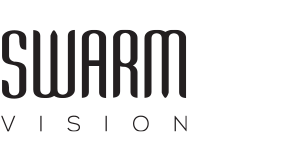This blog was originally published in InnovationManagement.se at on August 9, 2017. In the article, the author argues that companies need to take a fresh approach to innovation talent in order to realize stronger business results from innovation programs.
What Is The Legacy Approach to Innovation Talent?
The legacy approach to talent selection involves matching education, length of experience and functional skills to the role. All of this makes sense as a baseline, and for well-established professions. But, we argue, selecting talent for innovation requires a whole new approach. Companies must recognize specific innovation skills that drive business outcomes. Yet today, most of us lack the tools to do so.
In an earlier edition of Innovation Management, Prophet warned that legacy thinking, processes, and models toward innovation can anchor new possibilities to yesterday’s standards, which then limits or inhibits the return on innovation. Nowhere is this more true than in innovation talent selection.
The legacy approach to staffing innovation primarily relies on functional expertise. A block chain initiative is staffed with block chain experts. A medical device initiative is staffed with medical device experts. On the surface, that looks eminently reasonable. But here’s the surprising fact: Some of the functions most expected to contribute to innovation may be the least cut out to deliver it. Furthermore, If you line up a sample of any functional knowledge group, you will find they fall on a spectrum of innovation skill.
Innovation Talent Varies Widely in the Workforce
For example, we studied a group of 250 employees in a leading industrial company. Guess what? Core Technology (CT), the function most expected to deliver innovation, scored among the lowest on innovation skill. Yet within Core Technology, individual innovation scores ranged from a low of 45 to a high of 94. This matters when the organization is relying on technology or R&D to deliver innovation.
Defining Innovation Skills
What do we mean by innovation skills? Does it mean candidates need to know Lean Start-Up and Design Thinking? Does it mean they need to code? No. But take heart. The Innovation skills that impact business results are now both known, and can be measured.
How can we be so sure? Back in 2014, we were running large-scale innovation crowdsourcing campaigns for huge companies. We recruited thousands of participants from 90+ countries into crowds for Intel. Procter & Gamble. ABInbev, and more. We noticed that different kinds of people tended to join these crowds.
Some of the crowd were very active reading and commenting on ideas, but didn’t submit many ideas themselves. Some were talented designers but didn’t submit fundamentally very novel ideas. Others submitted a lot of really novel ideas. We wanted to figure out how to identify these prolific and disruptive thinkers. We cracked that code with our crowd innovation profiler, but we still weren’t satisfied. After all, companies need more than just ideation skills.
So we undertook another two years of proprietary research, studying serial innovators, half entrepreneurs and half intrapreneurs, from a wide array of industries. Hypotheses emerged about the skills that make successful innovators different from the general population. And then we conducted three rounds of quantitative research internationally to finalize our instrument.
The Eight Innovation Skills That Drive Business Outcomes
It turns out that eight distinct skills correlate with real world innovation business results, Business results like sustained profits, hyper-growth, top quadrant analyst ratings, loyal customers, acquisition and IPO:
These eight skills are the same, whether you’re in medical devices, consumer packaged goods, or fintech. Moreover, these are not qualities that hiring managers are trained to detect. (Certainly resume parsing bots do not know how to identify them!)
Can We Predict Business Outcomes of Innovation Based on Who Is Involved?
The Holy Grail for us is to be able to not only identify the innovation skills of successful innovators in a rear-view mirror, but to be able to predict business outcomes from innovation, based on who is involved. We hypothesized that high Swarm scores would correlate with better business results. And our hypotheses were validated. People who scored high (in the top quintile) on the Profiler achieved 2-3x as many innovation business results as those in the bottom quartile:
Interestingly, Horizon 3 (Disruptive) innovators not only have higher average Swarm scores, but specific Swarm profiles: They score higher not just on Boundary Breaking and Novelty Seeking which one might expect, but also on Resourcefulness, Initiative and Intensity.
Why Innovation Talent Selection Needs to Change
The field of innovation talent selection is in its infancy. Today companies are still falling back on legacy talent approaches that harken back to the early days of the industrial revolution. Typically, companies select talent for innovation who:
- Are available
- Are known to / liked by the hiring manager
- Have the relevant functional skills
- Appear somehow creative
We will write separately about the perils of confusing Creativity with Innovation. But for now, why is a legacy approach to innovation talent problematic? CapGemini found that difficulty finding the right people to drive innovation efforts was the number one constraint to innovation success:
Source: CapGemini, Innovation Leader or Laggard, 2010
Why Taking A Fresh Approach is Essential
In Why Good Companies Go Bad, HBR found that in failed companies, the fresh thinking that led to a company’s initial success is replaced by a rigid devotion to the status quo. And when changes occur in the company’s markets, the formula that had brought success instead brings failure. Swarm Vision has created a scalable platform to identify and harness innovation talent in the enterprise. Innovation talent is a primary constraint to innovation success. We challenge the reader to examine the way you select talent for innovation, and to tap the new data-driven tools now available in the market.
About the Author
Suzan Briganti, CEO & Founder, Swarm Vision
Suzan Briganti brings 25 years of experience in research, strategy and innovation. Suzan has a patent pending in innovation software. She has grown Swarm Vision from a garage start-up to a trusted solution provider to global Fortune 500 clients. Swarm Vision is a platform to identify and leverage innovation talent in the enterprise to drive growth. Suzan leads Swarm Vision with a focus on building great products and teams. Suzan has an MBA summa cum laude from Boston University and a design degree from Italy.
Contact: suzan@swarmvision.com, @swarmvision


